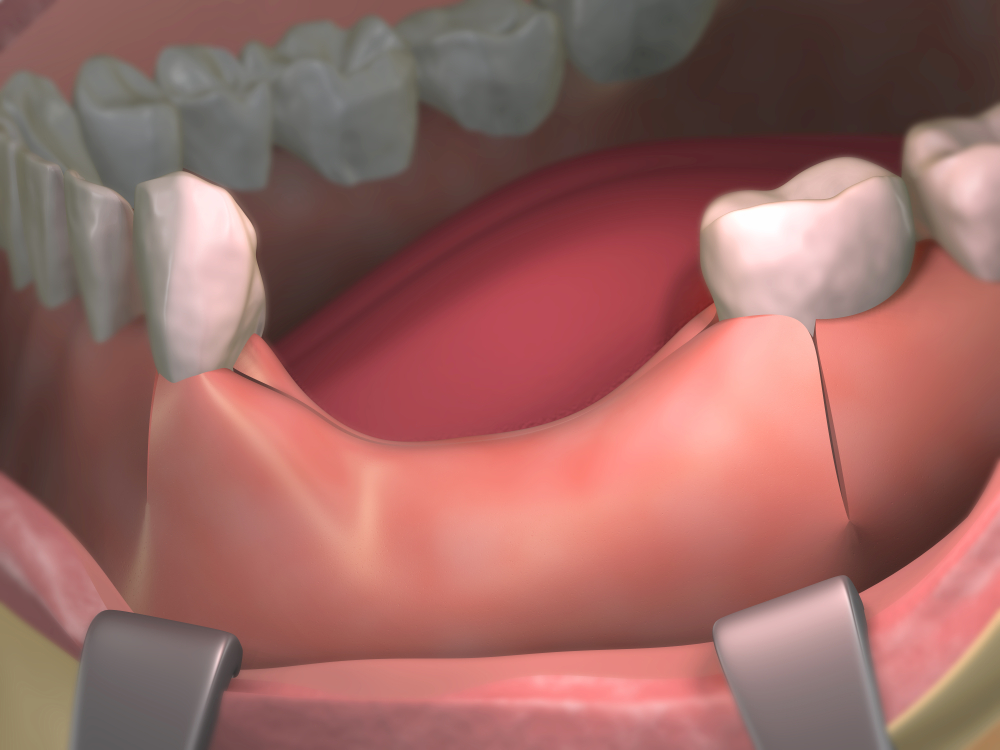Preparing for Dental Implants
At John M. Conness DDS, FAGD, FICOI, DICOI, we want all our patients to have the opportunity to receive dental implants that offer life-long benefits for their oral health. However, some patients might not be able to receive implants right away due to underlying oral health issues.
If this is the case, patients will need to undergo a supplemental treatment to prepare their mouths for optimal success. Dr. Conness can help restore your ability to receive dental implants with one of our preliminary procedures. Explore your options and see which one you might need with our helpful guide.
When Are Supplemental Procedures Necessary?
While not every patient will require supplemental procedures, it’s essential for some patients to undergo an additional treatment to avoid any complications while receiving dental implants. Dr. Conness will likely recommend a supplemental procedure to patients with:
- Insufficient Bone Density: Because dental implants are surgically secured to the jawbone, you’ll need to have the right amount of bone density to support an implant. Otherwise, it may lead to a failed implant procedure.
- Gum Disease: Periodontal disease may reduce the chance of a successful implant procedure. It’s important that you have healthy gums before receiving dental implants.

Bone Grafting
If you lack jawbone mass due to wearing dentures or living toothless for an extended period of time, bone grafting may help. This procedure helps patients regenerate lost bone in order to provide enough support for their implants.
Once Dr. Conness confirms you need to undergo a bone grafting procedure, he’ll first provide you with dental sedation to help you achieve a greater state of relaxation. Then, he’ll make a small incision in your gums so he can place a small piece of bone tissue from another part of your body and attach it to your jawbone. This grafting material will help supplement the density of your jawbone, creating new bone in the process that offers a solid, sturdy base to support your dental implants.
The healing period after a bone grafting procedure can last several months. However, each patient is unique, and Dr. Conness will be able to determine a more accurate time frame once he completes your surgery. After you’ve healed from this procedure, Dr. Conness will discuss your candidacy for dental implants.
Treatment for Gum Disease
If you have unhealthy gums that are infected with periodontal disease, it’s crucial that you get gum disease treatment before investing in dental implants. Dr. Conness will evaluate the health of your gums at your consultation and determine if you’ll need a supplemental gum disease treatment.
We offer different procedures that will prepare you for dental implants, such as:
- Gum Grafting: For some patients, we’ll need to replace areas of lost gum tissue with healthy tissue from another area of the mouth. This way, the new implants will be held in properly.
- Crown Lengthening Surgery: This surgical procedure recontours gum tissue to help expose more of the bone or tooth’s surface so it can better support a crown.

Frequently Asked Questions
How long does it take to recover from a dental bone graft?
If you’re receiving a graft before undergoing dental implant surgery, then Dr. Conness will have to wait until the bone has successfully fused with your jawbone. Generally, the recovery time for a dental bone graft can take anywhere from three to nine months depending on type of bone grafting procedure..
Your recovery time will vary based on a number of oral health factors. During your initial consultation, Dr. Conness will provide you with an estimated procedure timeline.
Because the healing period takes a few months, Dr. Conness will provide you with a temporary tooth replacement so you won’t have to live toothless any longer. This will also help protect the implant site from bacteria in the meantime.
Can you still have dental implants with gum disease?
In order to be a viable patient for dental implants, you’ll need to have a healthy mouth — this includes your teeth, gums, and jawbone. If you have gum disease, Dr. Conness will have to perform treatment for this health issue before you can receive implants.
We also offer gum grafting and crown lengthening surgery to our patients who suffer from severe periodontal disease. This allows you to receive dental implants once your gums are healthy and have fully healed.
Can I still get dental implants without a supplemental procedure?
If you lack sufficient bone density or have periodontal disease, it’s unlikely that Dr. Conness will clear you for a dental implant procedure. Without the proper bone density or oral health requirements, you face a high risk of implant failure and infection. Our supplemental procedures are safe and effective, preparing you for implants in a short amount of time.
Will insurance pay for a supplemental procedure?
We recommend contacting your dental insurance provider to find out if your plan will help cover your procedure costs. You can also visit our financing page to learn more about your payment options and discover if CareCredit can provide you with any financial assistance. If you have any questions, please contact our Ottawa office at (815) 324-2550 and one of our knowledgeable team members will be happy to assist you.
Schedule Your Preliminary Procedure
The sooner you begin preparing your mouth for dental implants, the quicker you’ll be able to leave our office with a new smile and even more confidence. If Dr. Conness recommends one of our supplemental procedures, don’t hesitate to schedule an appointment.
The sooner you begin preparing your mouth for dental implants, the quicker you’ll be able to leave our office with a new smile and even more confidence. Contact our Ottawa practice at (815) 324-2550 or fill out our online contact form and a team member will get back to you shortly.